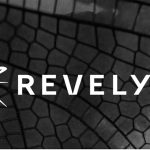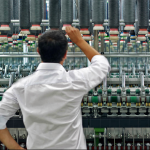Lenzing AG, the global market leader for man-made cellulose fibers and the world’s only large-scale industrial provider of Lyocell/Tencel fibers, is taking legal action against the violation of its Lyocell patents.
A preliminary but not yet legally binding injunction has been imposed on the Austrian engineering firm One-A Engineering Austria GmbH. Accordingly, One-A is prohibited from using the Lyocell spinning technology which has been patented by Lenzing and is thus protected by law. One-A is owned by four previous Lenzing-Lyocell employees, and received an engineering contract from the Chinese company Baoding Swan Ltd. The corresponding evidence to back this claim was obtained within the context of a search warrant ordered by the Vienna Commercial Court and executed at the offices of One-A Engineering Austria GmbH.
Lenzing is the owner of process patents, in which, after the forming procedure in the spinning device, the Lyocell spinning solution is released into an air gap of a special gas or air stream. This is what enables the constant and high quality of Lyocell fibers. As a consequence of the patents, the protected production processes may not be used without Lenzing’s express approval. Similarly, the fibers manufactured in accordance with this process may not be used, offered for sale or sold without the consent of Lenzing.
In line with the preliminary injunction, One-A Engineering Austria GmbH is not permitted any longer to teach other individuals or parties, in particular the company Baoding Swan Ltd., how to use the patent-protected processes or support them in using this process. This injunction particularly relates to the supply of know-how, project concepts, process descriptions and plant design. This supply ban also applies to drafts and plans (such as technical drawings), process instructions and instruction manuals for plants, equipment and components, as well as the provision of engineering services and technical service.
Lenzing also intends to take uncompromising action against any and every violation of its patent rights in the future as well.















